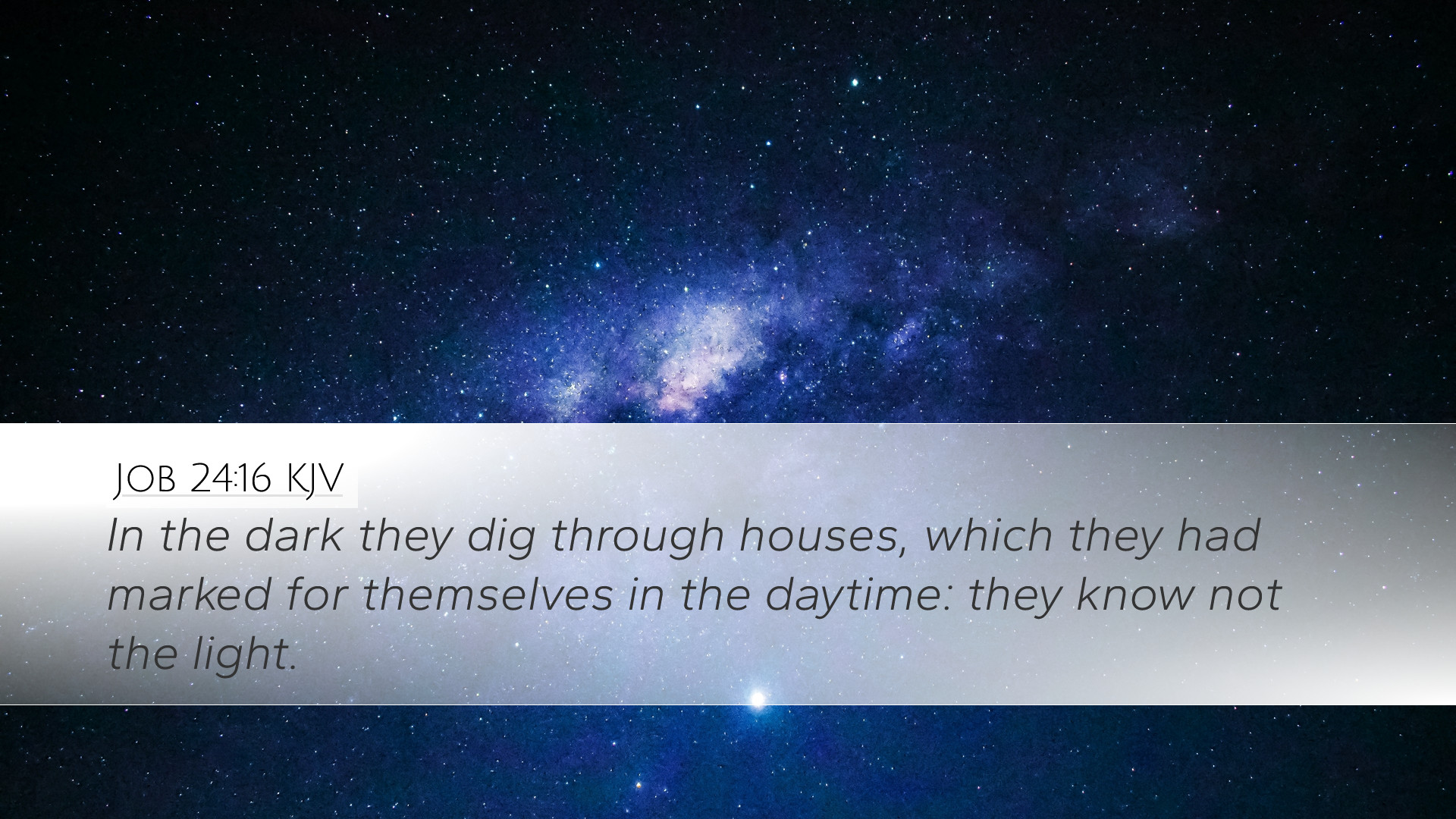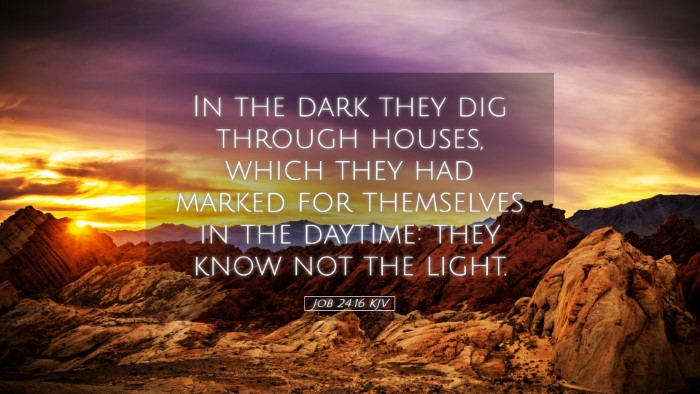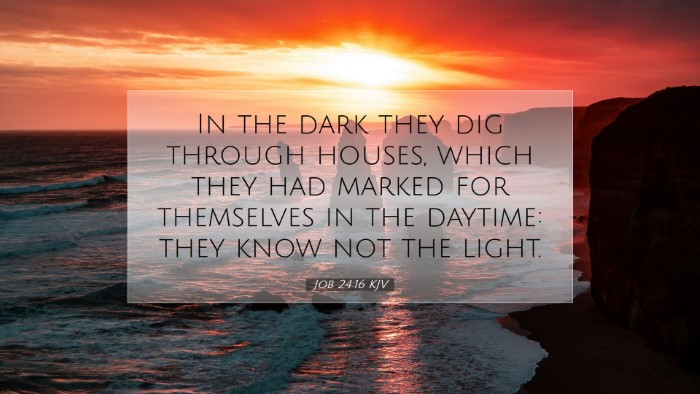Old Testament
Genesis Exodus Leviticus Numbers Deuteronomy Joshua Judges Ruth 1 Samuel 2 Samuel 1 Kings 2 Kings 1 Chronicles 2 Chronicles Ezra Nehemiah Esther Job Psalms Proverbs Ecclesiastes Song of Solomon Isaiah Jeremiah Lamentations Ezekiel Daniel Hosea Joel Amos Obadiah Jonah Micah Nahum Habakkuk Zephaniah Haggai Zechariah MalachiJob 24:16
Job 24:16 KJV
In the dark they dig through houses, which they had marked for themselves in the daytime: they know not the light.
Job 24:16 Bible Commentary
Commentary on Job 24:16
Verse: "In the dark they dig through houses, which they had marked for themselves in the daytime: they know not the light."
Introduction
Job 24:16 presents a vivid image of wrongdoing and the profound moral darkness that envelops the unjust. It invites readers to reflect on the nature of evil and the ultimate justice of God, which is a theme prevalent throughout the book of Job. This commentary synthesizes insights from notable public domain theologians including Matthew Henry, Albert Barnes, and Adam Clarke.
Contextual Overview
The Book of Job explores the theme of suffering and divine justice. Job, a man of integrity, is confronted with inexplicable calamity. Throughout his discourse, Job references the plight of the wicked and how their actions often appear to go unpunished in the short term.
Exegesis of Job 24:16
The Imagery of Darkness
Henry remarks on the enveloping darkness that characterizes the lives of the wicked. The imagery of digging through houses in darkness symbolizes both the secretive and oppressive nature of their actions. This suggests a purposeful deception and inclination towards evil, highlighting the moral abyss these individuals inhabit.
The Marking of Houses
Barnes notes that the "marked" houses imply a predilection towards theft and exploitation, where the thieves have premeditated their crimes in daylight but choose to act under the cover of darkness. This duality underscores the complexities of human morality as seen through the lens of sin and selfishness.
The Absence of Light
Clarke emphasizes that the phrase "they know not the light" illustrates the ignorance and blindness of the wicked. They are oblivious to the divine truths and the moral consequences of their actions. The absence of light signifies not just physical darkness but also spiritual ignorance and a disconnection from righteousness.
Theological Implications
The verse captures the essence of moral confusion in a world where righteousness is often obscured. It raises significant theological questions regarding God's justice:
- The Nature of Evil: The commentary highlights the propensity of humans to gravitate towards sin even when they are aware of its consequences.
- Divine Justice: The hiddenness of God's judgment is noted, with the assurance that ultimate justice does prevail, though often it is not visible in the immediate circumstances.
- Human Accountability: This verse serves as a reminder that each individual bears moral responsibility for their actions, regardless of societal norms.
Comparative Insights
Henry, Barnes, and Clarke collectively emphasize the hierarchical nature of sin as it progresses from intent to action, and its consequences. They present the idea that the wicked may thrive temporarily, but the long-term effects of their actions lead to spiritual ruin.
Furthermore, they agree on the overarching theme that true wisdom and understanding come from embracing the light of God’s truths, which ultimately overcomes darkness.
Practical Applications
Pastors and theologians can draw from this verse to teach about the hidden nature of sin and the necessity of living in the light of God's Word:
- Encouragement to Seek Righteousness: Believers should strive to live transparent lives before God, embodying the truth rather than hiding in darkness.
- The Importance of Accountability: Church communities need to foster environments where individuals can confess and repent from their hidden sins.
- Reflection on Justice: This passage invites contemplation on God's timing and the assurance that His justice is ultimately unfailing.
Conclusion
Job 24:16 serves as a poignant reminder of the deceptive nature of sin and the inevitable justice of God. The insights of Matthew Henry, Albert Barnes, and Adam Clarke collectively underscoring the necessity of light in the pursuit of righteousness, provide a robust framework for understanding this complex verse. For pastors, students, and scholars alike, this commentary reflects the gravity of moral choices and the profound impacts they have on human lives.


